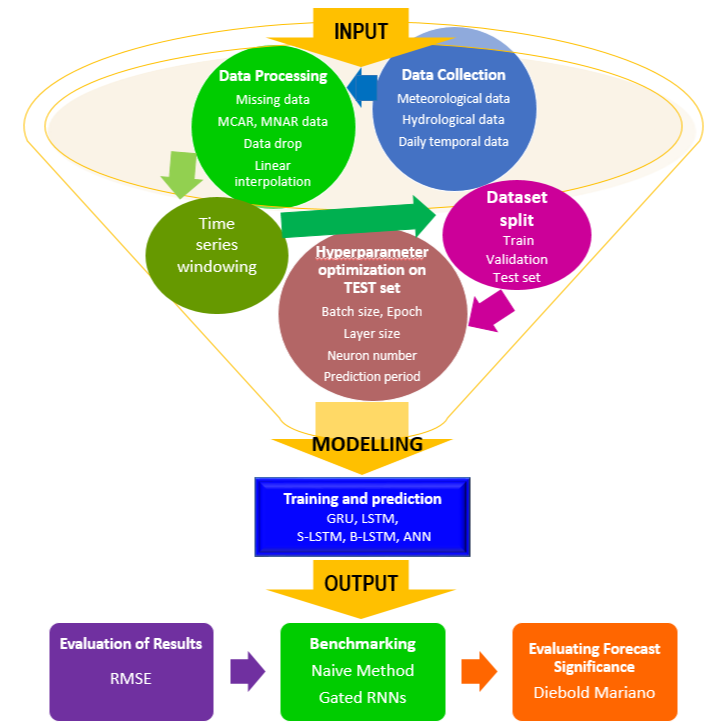Ph.D. Candidate: Serkan Özdemir
Program: Information Systems
Date: 19.12.2023 / 13:30
Place: A-212
Abstract: Global climate change has led to large fluctuations in lake levels in recent years, due to both changing meteorological parameters and intensive water use. A shift in input or output variables can easily alter the water balance equation and move water levels in the opposite direction. To understand the continuing trend and to create an action plan for dramatic water balance and water quality management, scientists use a variety of models to analyze several variables recorded. In this thesis, the predictive models used for the climatic and hydrologic variables are discussed and their relationships to Lake Water Level (LWL) and water quality are presented. Based on the technological progress, three different types of algorithms a) Naive Method, b) Artificial Neural Networks (ANN) and finally c) Recurrent Neural Network (RNN) models are used to predict water level in lakes. The prediction results from the thesis show that Long Short Term Memory (LSTM) has the highest accuracy with respect to the Root Mean Squared Error (RMSE) evaluation metric. The models were also compared with the performance of the Naïve Method, and the results show that ANN and RNN algorithms are superior in prediction accuracy as the prediction horizon increases. The prediction performances were assessed with Diebold Mariano Test to decide significant differences. It also reveals the water quality of the lake is highly correlated with temperature and evaporation. The models and evaluation metrics are constructed to build a prototype of decision support tool in order water managers to use in operational transactions.
